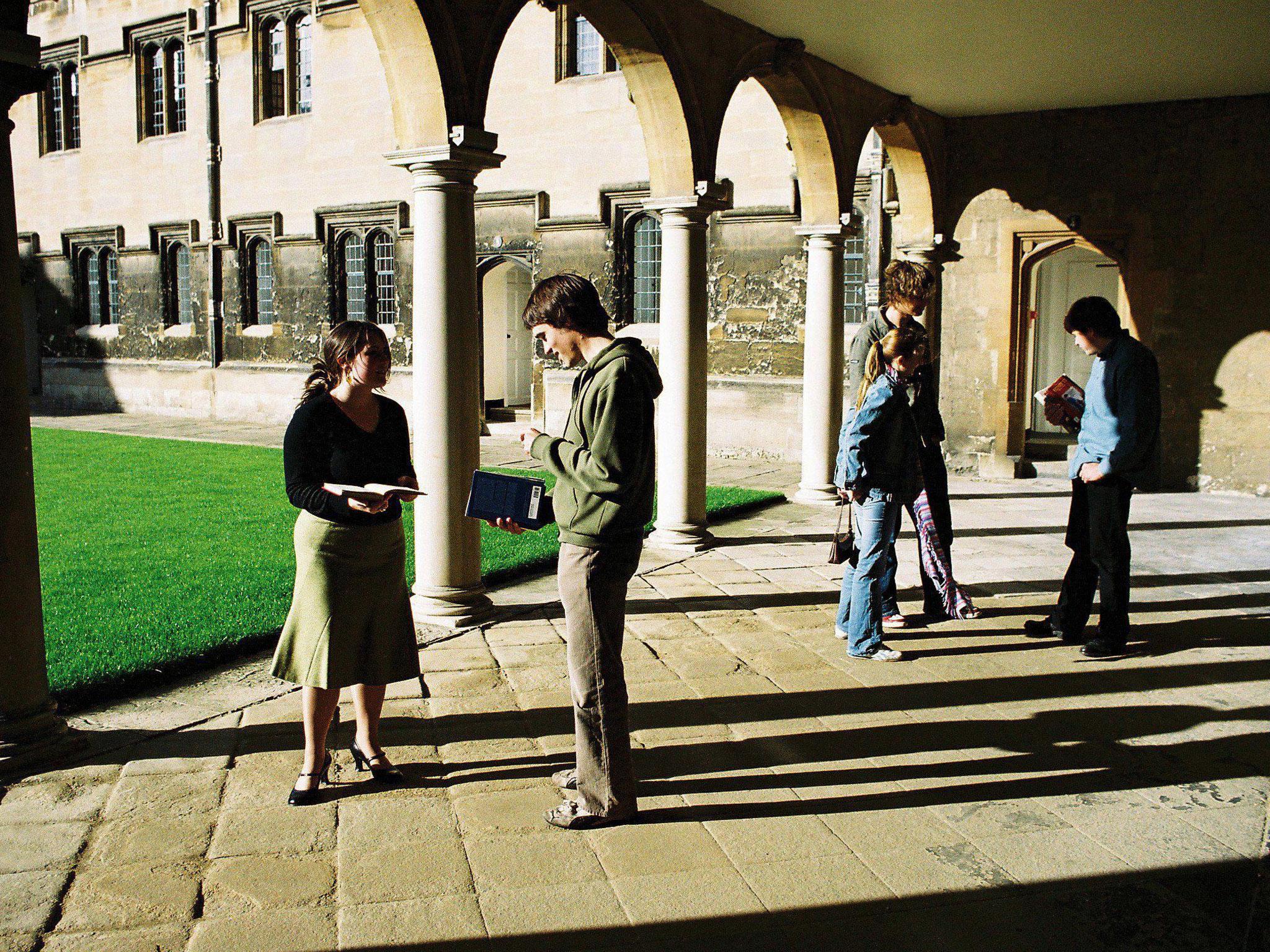Gap between state and private school students at top universities at its largest, show new figures
‘Universities have been putting a lot of money into access but there are question marks about how well that money is being spent,’ says education expert

The divide between the number of state and private school students attending universities is at an all-time high, despite hundreds of millions of pounds being pumped into schemes to widen access.
The growing gap stands at 43 per cent for the 2014/15 academic year: up from 37 per cent in 2008, the latest statistics by the Department for Education (DfE) show.
Campaigners said that the money put into access courses to tackle the divide was “well meaning”, but it needed to be “spent earlier” to boost achievement among younger pupils.
The debate over wider access to universities came on the heels of Education Policy Institute’s report: Closing the Gap? Trends in Educational Attainment and Disadvantage.
Institutions like the Russell Group universities run summer schools for disadvantaged students, while others provide free tutoring for them during their A-levels.
“Universities have been putting a lot of money into access, but there are question marks about how well that money is being spent,” said Professor John Jerrim, an expert in education and social statistics.
All higher education institutions that want to charge tuition fees of over £6,000 a year must have an “access agreement” in which they set out what steps they will take to boost diversity.
But Professor Jerrim, who is based at the Institute of Education, UCL, said that these agreements are largely a “box-ticking” exercises: “They go out and spend money but they don’t know if it works or not.”
He said: “Most of the emphasis is on sixth form and a lot of resource is spent on bursaries, which will only have minimal impact,” he said. “Money would be better spent earlier to boost achievement in schools.”
Nick Hillman, director of the Higher Education Policy Institute, said that universities’ efforts to improve access are “well meaning” but are not “evidence based”, while Sarah Stevens, head of policy at Russell Group, said the report shows there is “more work to be done” to widen access.
She added that the group will spend more than £250 million this year on schemes designed to boost diversity.
The National Union of Teachers (NUT) said the report over the gap between state and private school students was in part due to schools being “starved of cash” following cutbacks.
“This report gives a sombre warning to Government that unless investment and the correct interventions are in place, the attainment gap between disadvantaged pupils and their peers will continue,” a spokesperson said.
“Local authorities and schools are being starved of cash resulting in the closure of or cut-backs to many essential support services for those pupils most in need.”
They added: “There needs to be an end to the shameful funding crisis in both schools and local authorities that is seriously hindering the progress of our children and young people.”
The Government’s Higher Education said the report shows that “the battle for fair access is far from won”.
Professor Les Ebdon, Director of Fair Access to Higher Education, said: “Where you come from still has a disproportionate impact on where you will end up in life.”
Universities Minister Jo Johnson said: “Young people from disadvantaged backgrounds are 43 per cent more likely to go to university compared with 2009/2010, but we know there is more to do to close the gap between those from the most and least advantaged backgrounds.”
Subscribe to Independent Premium to bookmark this article
Want to bookmark your favourite articles and stories to read or reference later? Start your Independent Premium subscription today.

Join our commenting forum
Join thought-provoking conversations, follow other Independent readers and see their replies